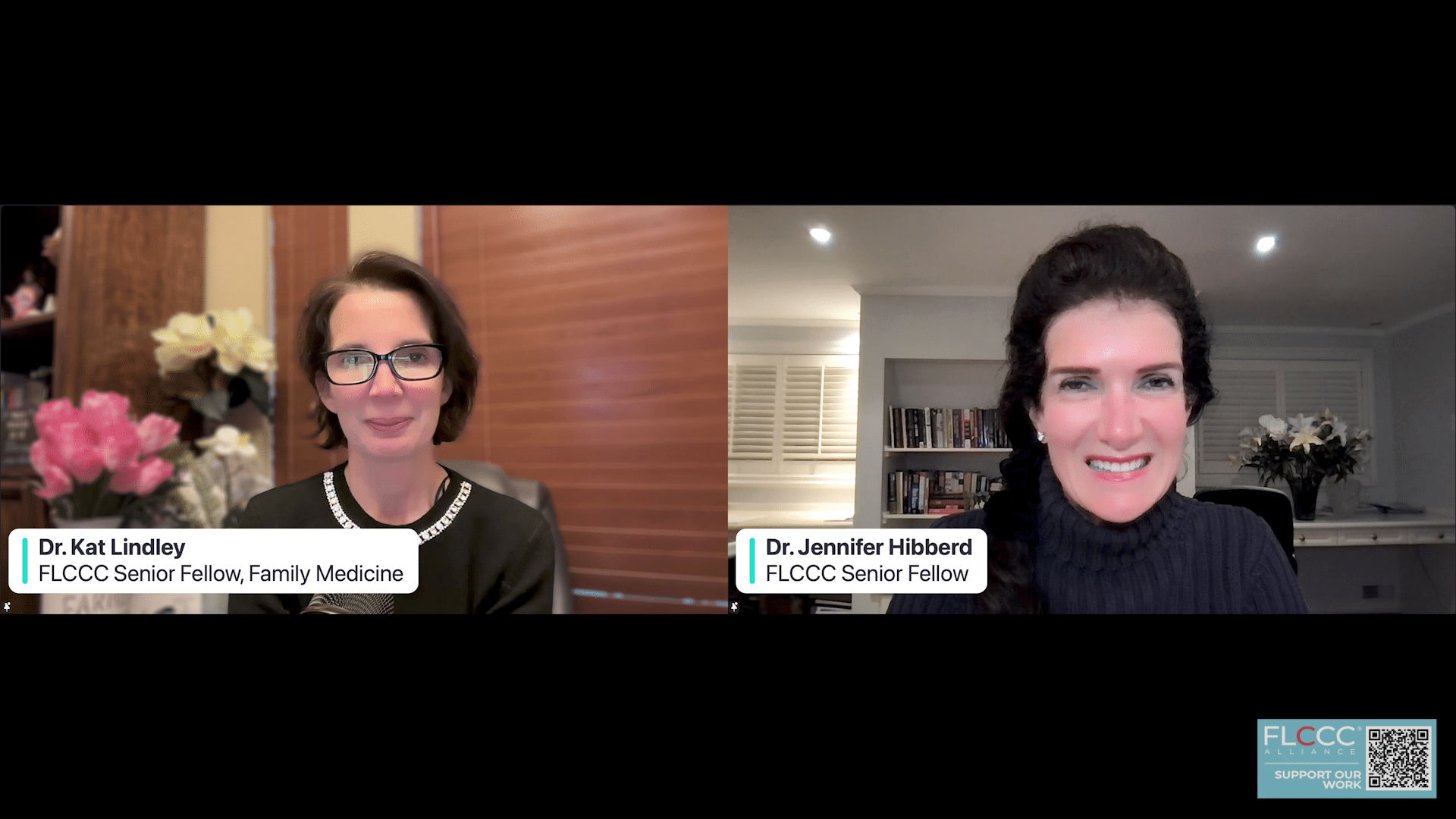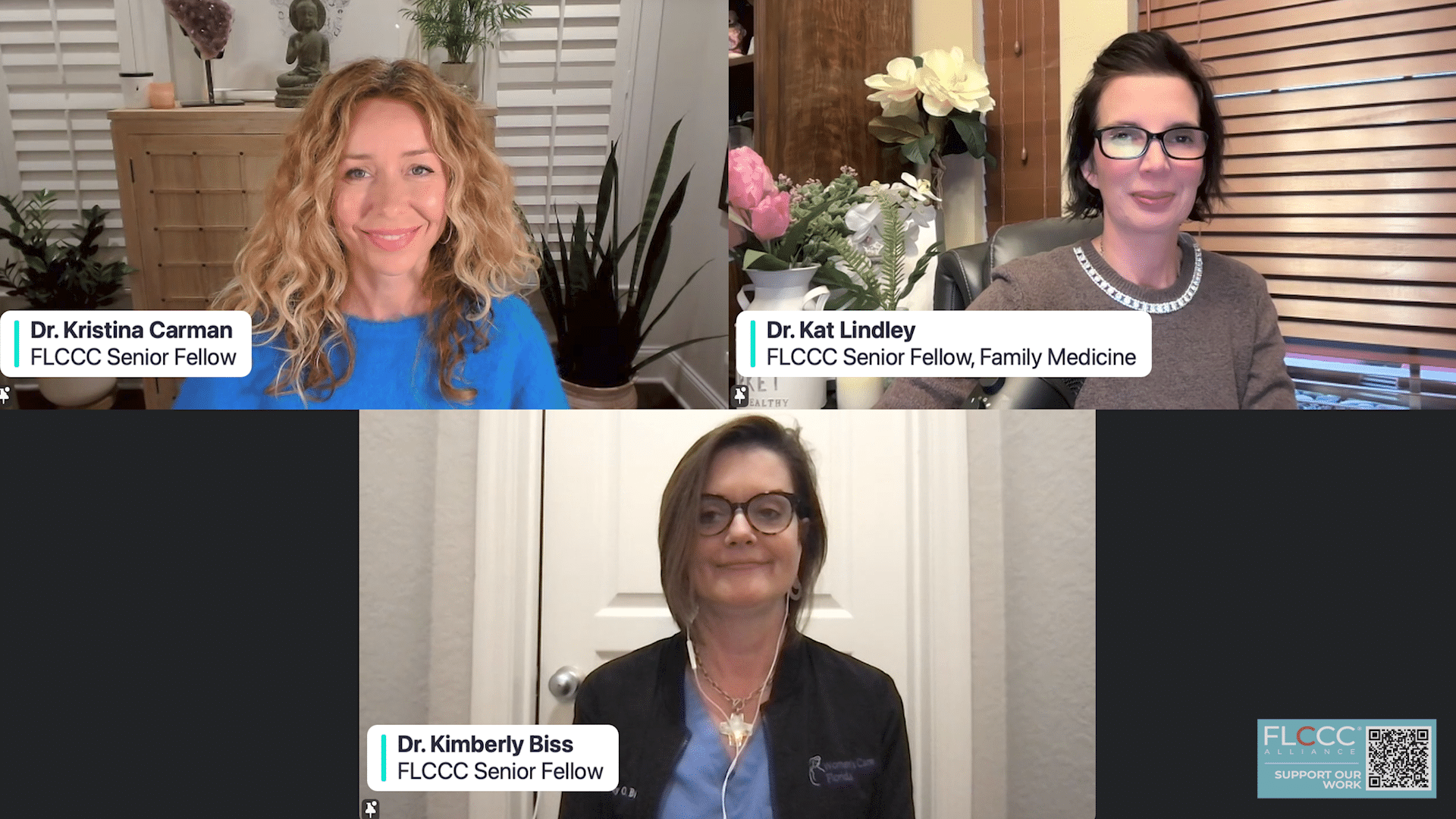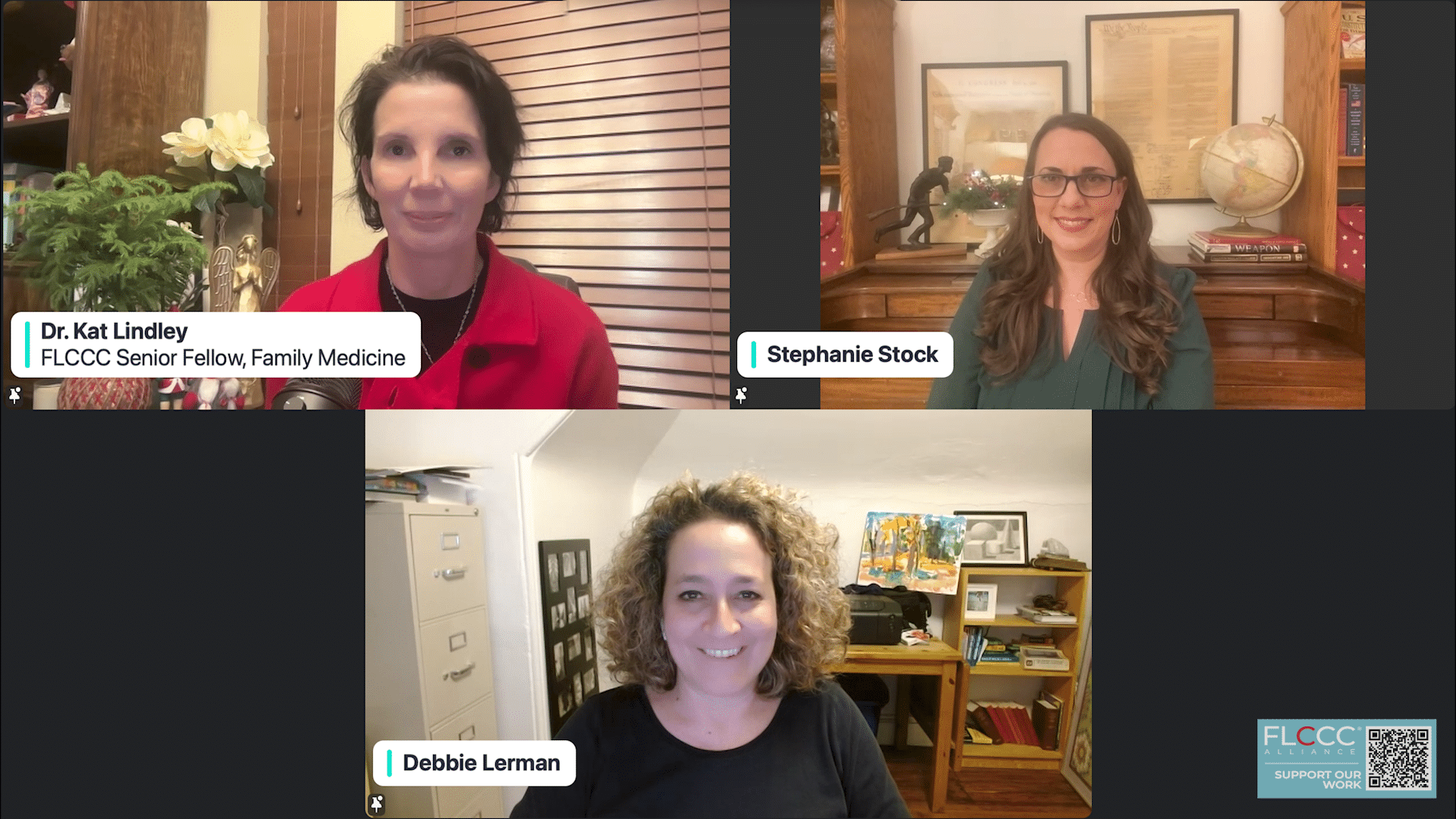Speakers: Dr. Kat Lindley, Dr. Meryl Nass, Breeauna Sagdal
Exposing the Threats to Our Food Supply
The food supply is a vital piece of our nation’s critical infrastructure. While discussions often center around cybersecurity vulnerabilities posed by distant hacker groups, the real threats are far more domestic and pervasive.
The most significant dangers to the food and agriculture sector come from within: monopolistic practices, excessive government regulation, and the growing influence of billionaire landowners. These issues pose a far greater risk to our food security than any ransomware attack.
Although these concerns have flown under the radar for many, the conversation is gaining momentum. America’s food security recently took center stage on a widely viewed episode of the Tucker Carlson Show. Meanwhile, our Weekly Webinar has been tackling pressing topics like the potential risks of mRNA vaccines in our livestock. Today, we shift our focus to a broader and equally urgent issue: the ongoing assault on our food supply.
To explore this critical topic, we’re joined by two leading experts in the field: Dr. Meryl Nass, a veteran physician and advocate for medical freedom, and Breeauna Sagdal, a seasoned researcher and writer specializing in food safety and sustainability. Together, they bring invaluable insights into the hidden dangers threatening our food systems.
Before we get started, here’s a quick shoutout for a worthy event hosted by Dr. Nass herself! Attack on Food and Farmers and How to Fight Back, September 6-7, CHD.tv and Door to Freedom. Don’t miss it:
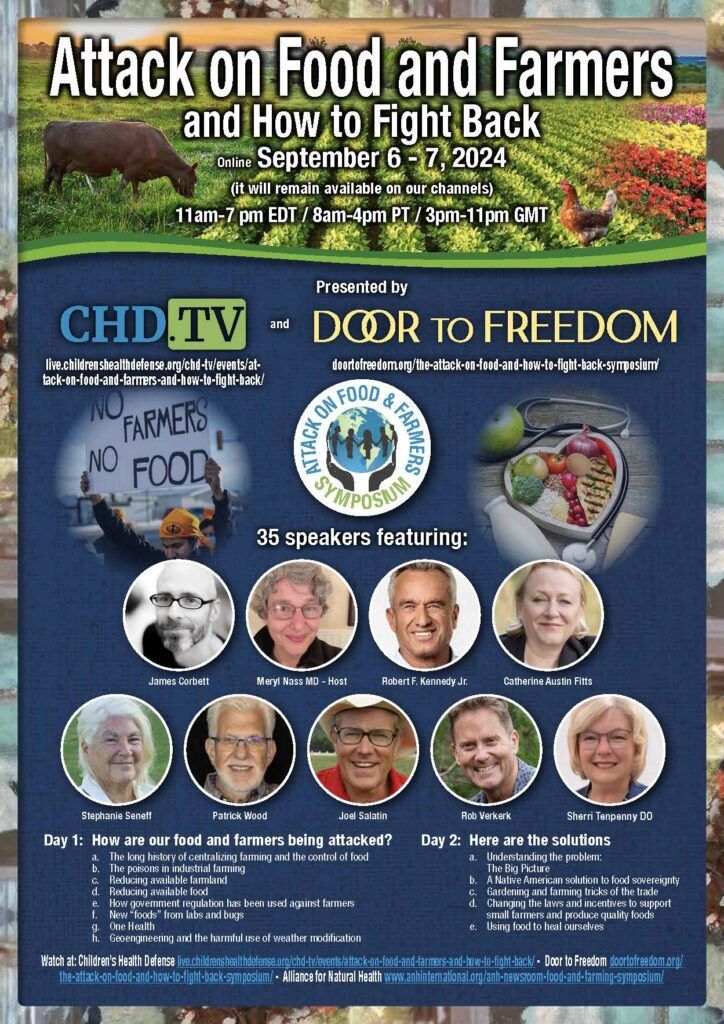
Meet Our Food Safety Experts
Dr. Meryl Nass

Dr. Meryl Nass is a highly experienced internal medicine physician and a dedicated advocate for medical freedom and transparency in public health. With over four decades of medical practice, she has a rich history of involvement in significant public health debates, including testimony before Congress on issues related to biological warfare, the anthrax vaccine, and Gulf War Syndrome.
Dr. Nass has also served as a consultant on chemical biowarfare for international bodies such as the Cuban Ministry of Health. In recent years, she has focused her efforts on educating the public about the dangers of centralizing control over food and medicine, working closely with organizations like Children’s Health Defense
Breeauna Sagdal
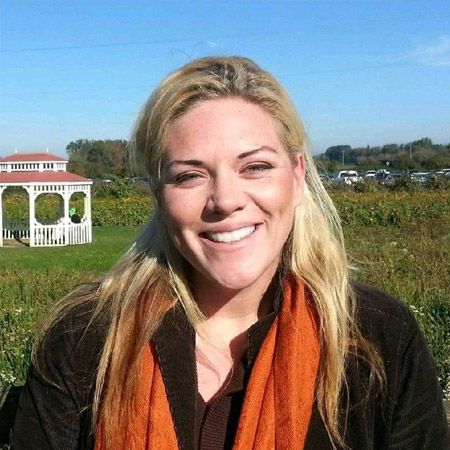
Breeauna Sagdal is a seasoned researcher, writer, and policy-based journalist with nearly a decade of experience in addressing complex issues related to public health and food safety. She is currently a leading voice in the Beef Initiative, where she works to promote transparency and sustainability in the food supply chain.
Breeauna has been involved in direct advocacy efforts, collaborating with state and federal legislators to address the regulatory challenges facing small farmers and ranchers. Her work aims to highlight the critical need for decentralization in the food industry to ensure a stable, safe, and accessible food supply for all.
Why Are Experts Concerned About the Food Supply?
Dr. Meryl Nass raises serious concerns about the centralization of food production in the United States and globally. She describes a concerted effort by powerful entities to gain control over food sources, leading to significant risks for farmers and consumers alike.
“What is happening is that certain wealthy and powerful forces are trying to gain control of resources around the world and control our lives in many ways… Another thing these people are interested in is gaining control of food sources, from ’30 by 30′ to squeezing out small producers.” – Dr. Nass
👉 Learn more: Dr. Nass’s webinar presentation slides
-
Centralization of Food Production
The pig and poultry industries in the United States have become highly centralized, with less than five companies controlling 80-90% of all chickens and pigs. This consolidation has created a market dominated by a few large entities, reducing competition and increasing vulnerability.
-
Dependence on Imports
The centralization of food production has led to a growing reliance on imported beef. Dr. Nass notes, “A tremendous amount of our beef is coming from Brazil and other countries.” This shift not only affects local economies but also raises concerns about the quality and safety of imported meat.
-
Threat to Small Farmers and Ranchers
The overarching goal appears to be to drive small farmers and ranchers out of business. By creating regulatory and logistical challenges, these powerful entities aim to consolidate control further. Dr. Nass warns, “The goal is to put farmers out of business.”
-
Concerns About Food Quality and Safety
Centralization also brings concerns about food safety and transparency. Consumers lose trust in the food supply when they do not know the conditions under which their food is produced. Dr. Nass emphasizes the need for transparency, stating, “We want to know that cow wasn’t injected with mRNA vaccines; we want to know you can trust that farmer.”
-
Influence of Globalists and Billionaires
Prominent figures such as Bill Gates and Ted Turner have become major players in the agricultural sector, buying up significant amounts of farmland. These actions align with broader globalist goals to control food resources and dictate food production methods. Dr. Nass suggests these efforts are part of a broader strategy to centralize control and reduce the independence of smaller food producers.

What Problems Are Farmers Facing?
Farmers face an uphill battle against bureaucracy. Sagdal points out, “It is illegal to sell meat without that federal stamp.” She explains that each level of regulation introduces increased costs, favoritism, and market consolidation. This system essentially “contracts out the raising of poultry and pork,” making the farmers “serfs on their own land.”
The Beef Industry is in Crisis
Breeauna Sagdal points out that the U.S. beef industry has shifted to becoming a “net importer” in recent years. She underscores the alarming concentration of processing capacity, with just five plants handling 95% of the nation’s meat supply, processing approximately 5,400 cattle daily. This rapid pace, equating to 200 cows per hour, makes thorough inspections nearly impossible, compromising the safety and quality of the meat Americans consume.
Solutions for U.S. Beef Farmers?
Addressing these concerns, both Dr. Nass and Breeauna agree that most solutions involve removing excessive regulations or “red tape.”
“At every step of our supply chain, there is a regulator making it more difficult for us to get our product to the market.” – Breeauna Sagdal
She calls for a removal of these barriers to allow local producers to thrive again. Here’s what Sagdal says could help:
- Streamline USDA Regulations: Sagdal suggests that scaling back USDA regulations on certification programs could help alleviate some of the burdens on small producers.
- Expand State Certification Programs: Allowing states to develop and expand their own certification programs could reduce dependence on federal oversight and encourage local solutions tailored to specific needs.
- Increase USDA-Certified Inspectors: Expanding the number of USDA-certified inspectors would help alleviate bottlenecks in meat processing, allowing more small and medium-sized producers to bring their products to market.
- Support Local Food Networks: Encouraging the development of local food networks and co-ops can help consumers connect directly with farmers and ranchers, fostering a more resilient food system that is less dependent on large-scale industrial agriculture.
The Dutch Farmers Case Study
The Dutch government has also played a role in these global shifts. “The Dutch government has told the farmers they need to get rid of 30 to 50 percent of all cows and given pink slips to about 3,000 farmers and ranchers,” says Dr. Nass. The stated reasons range from environmental concerns, such as nitrogen and methane emissions, to desires for land repurposing for urban development.
This story exemplifies the types of regulations and restrictions being placed on farmers worldwide, further emphasizing the push towards centralized control of food production.
👉 Learn more: Dr. Nass Substack on the Dutch Farmers’ Plight
Raw Milk: Nutritious Food or Health Risk?
If there weren’t enough problems with the food supply, leave it to the authorities to create more.
Dr. Nass provides a striking example with raw milk. “How many instances [of illness] have there been with raw milk? Of course, it’s one or two,” she notes, highlighting that raw milk, when handled properly, is generally safe. However, like other decentralized, small-scale food production, it faces intense regulatory scrutiny, with Amish farmers and others being raided for selling raw milk.
Lab-Developed Foods and Insect Protein: On the Menu
A new trend in food production involves lab-developed foods and insect protein. “If you go to Amazon and look up insect foods,” Dr. Nass says, “you’ll find lots of brands already.” She personally thinks the push for these new foods is not economically driven. “There are all kinds of designer foods,” she explains, “Then there are novel ingredients, new molecules.”
These foods are often labeled as “generally regarded as safe (GRAS),” but Dr. Nass advises, “If you see GRAS, run for the hills.”
👉 Learn more: How to Read Food Labels
What Can You Do to Protect Our Food Supply?
“The situation is so dire that we need to get working together,” Dr. Nass emphasizes. Breeauna Sagdal agrees, adding, “At this point, we really just need people to get involved.”
The message is clear: it’s time for collective action to protect our food supply from centralization and control by a few powerful entities.
If you found this webinar insightful, we invite you to support FLCCC’s ongoing research and advocacy on this and many other critical issues. Here’s how you can get involved:
Join our Forums – Stay informed and be part of the conversation, all for free.
Subscribe to our Newsletter – Get the latest updates on health and wellness directly in your inbox.
Visit our Shop – Show your support with some stylish FLCCC gear.
Follow us on Substack – Access exclusive content and stay up-to-date with our latest insights.

